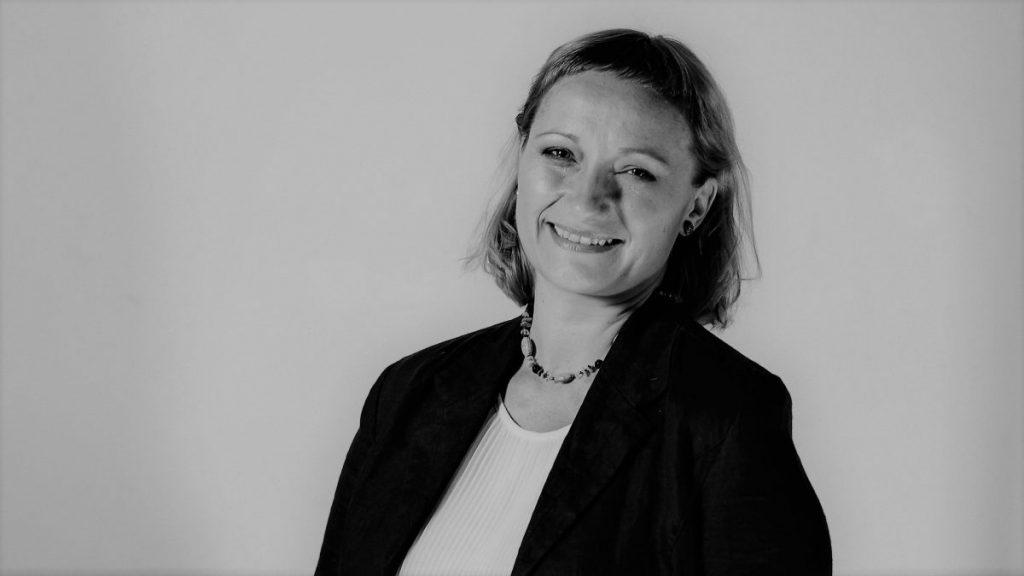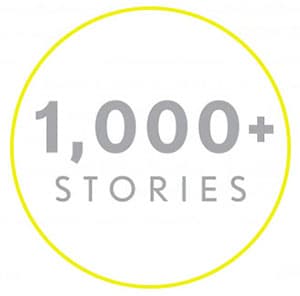
Melita Cepin is an organizational psychologist for female entrepreneurs. After working with start ups through an NGO she noticed all the ways in which entrepreneurs were not being supported; yes there were surrounding education structures on topics like marketing and pitching, but what about emotional support? Cepin founded Uella-Women Founders Emotional Care in response. Today she works with women in business to help them strengthen skill sets that are unique to their positions, like creating healthy boundaries, navigating difficult negotiations, handling discrimination and communicating effectively in tough situations. The Graz, Austria-based entrepreneur believes that by helping women develop these emotional skills, she is helping them to shape the landscape of the business world.
Cepin’s story, as told to The Story Exchange 1,000+ Stories Project:
What was your reason for starting your business?
I worked as an educational program manager for an NGO that supported impactful startups. As an organizational psychologist, I realized there is a lot of training and education for new entrepreneurs on technical topics like marketing, business planning, pitching, etc., but no support for the emotional part of that very rocky road of entrepreneurship. I wanted to support women because helping them become economically independent means changing the world for our daughters, the next generation of women as well as men, and humanity. Being discriminated against as a woman, I experienced the helplessness that comes with being in an inferior position. I want to fight to raise awareness and help build strong, confident women who can stand up against discriminative behavior – whoever it comes from.
How do you define success?
For me, success is a very personal experience. In different stages of life it means different things. At the moment, I feel successful having a healthy, loving family and supportive husband to enable me to make my impact on this world. I experience success when I can see the change in my clients (or even myself) living a more satisfied, qualitative life. I am grateful for small changes, such as helping one women entrepreneur to negotiate better or big ones like helping someone to overcome deeply seated beliefs holding them back. Success is absolutely connected to money; only by being fairly paid for my work can I create a better life for my family, get a better education for myself and make a bigger impact on others. I fight for closing the gender gap in earnings and for fairly paid work. I experience success when I get goosebumps, teary eyes, and am left feeling speechless. It is an amazing feeling of contentment. They are profound moments to carry with me and celebrate long after they are gone.
Tell us about your biggest success to date
Being 41 years old I have had a lot of big successes and deep falls. My biggest success is my daughter. But it is also funding my nonprofit organization, my education, and the travels I have taken. I could never point out one thing as my biggest success. It’s a circle.
What is your top challenge and how have you addressed it?
Like most entrepreneurs, I am good at providing my core services but everything else around running a business is really a burden. Especially marketing, selling, donations, applying for fundings. Bureaucracy. I outsource as much of these activities as I can. In the beginning, when revenue is not that much, usually the founder has to do it all – and this is a big challenge for me. Unconscious bias is a big challenge in the field I work in. Who decides if the funding will be approved and their personal or cultural stance about empowered women plays a critical role in my work. Company’s organizational culture towards women in a leadership position is crucial when I ask for donations. I have had so many discounted, humiliating conversations on this topic; I have cried many times when I realize what a long way we still have to go to create equal opportunities for women. I am an optimist and I believe small changes are better than no changes and so I keep going.
Have you experienced any significant personal situations that have affected your business decisions?
I moved from a country where I never experienced fewer opportunities because of my gender, to a country where gender roles are traditional, the gender gap is huge, and for me, as a foreigner and as a woman, many doors are closed. Experiencing this in the middle of Europe, in a wealthy country, is concerning. So I decided to take action rather than complain or run away. I want to raise awareness on the topic of equal opportunities at work, among all genders, generations and positions. It’s time to move forward. I founded a nonprofit, Uella, to support the change needed in so many parts of this world.
What is your biggest tip for other startup entrepreneurs?
I wish I had dealt with my internalized beliefs much sooner in my life, revisited my rules and assumptions about what is right, what is wrong, how to live, and how not to live a life, and had evaluated it with my adult self. Everything changes, circumstances change, the world changes, we change, and many things we have learned from our parents, teachers, or other significant others don’t work anymore. Adopting new beliefs would have saved me a lot of hard moments. My advice would be not to be afraid to change at any time of your life. And keep going! 🙂
How do you find inspiration on your darkest days?
When I started Uella, I bought myself a ring that represents my work. Whenever I want to give up, I am feeling drained, lost or hopeless I put it on, look at it and remind myself of all the women that need me to continue. This symbolic gesture empowers me every time. It is essential for me to maintain my mental ecology. Identifying my own needs is the most important in hard times. Sometimes I need to talk to a person who understands and supports me, sometimes I need to go to a concert, take a walk by the sea, or have a day or two of a TV series marathon. We have different needs at different times and recognizing the right need and satisfying it is very important. Otherwise, we are constantly dissatisfied, without energy, and consequently experience burn out, depression, or inefficiency.
Who is your most important role model?
I really don’t have any specific role models. I am inspired by many people I meet in everyday life and in my work.
Check out our Advice + Tips for entrepreneurs starting-up
Watch our latest videos
Subscribe to our podcast




